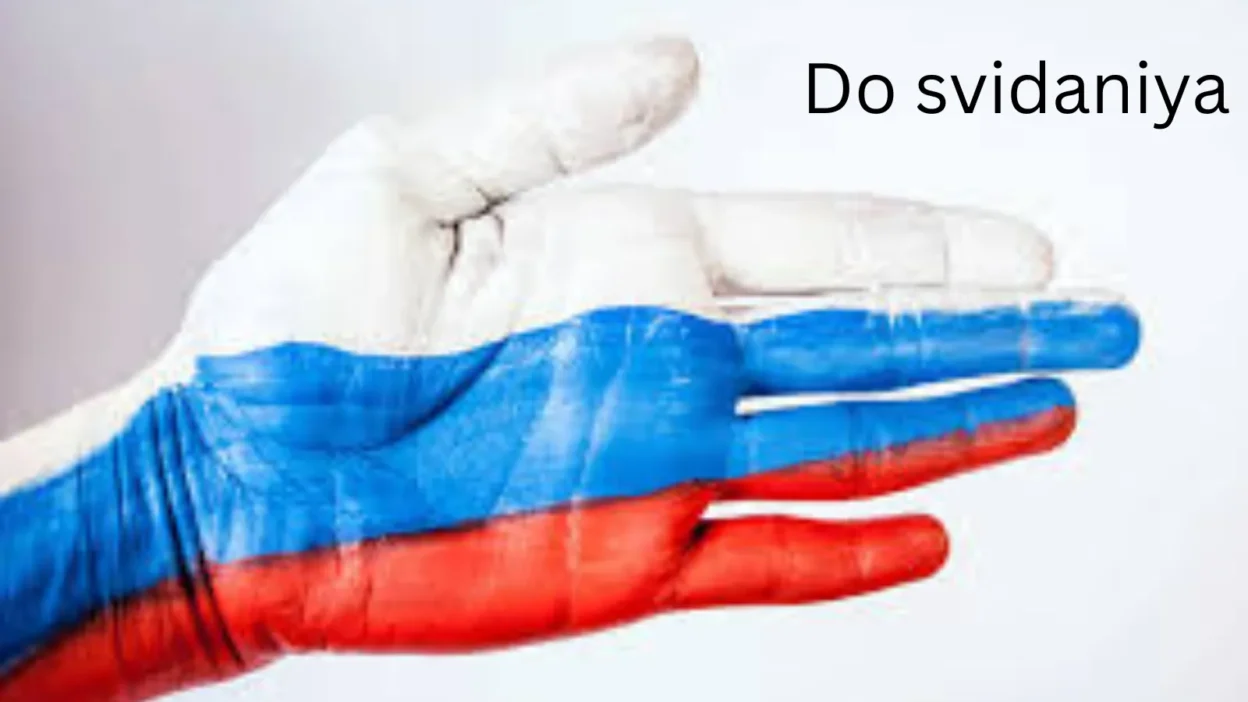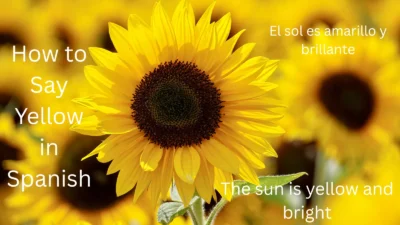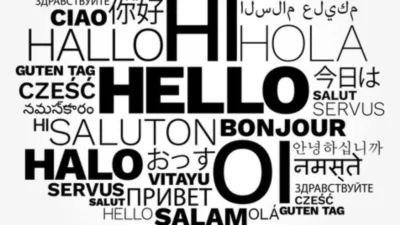How to Say Goodbye in Russian is one of the most essential things to learn when communicating with Russian speakers. If you’re ending a conversation formally, casually, or emotionally, choosing the right phrase shows cultural respect and understanding.
From everyday expressions like “Пока” (Poka) to more formal farewells such as “До свидания” (Do svidaniya), learning how to say goodbye in Russian helps you leave a lasting impression.
This guide will walk you through 15 powerful and polite ways to say farewell with context and examples to boost your fluency and confidence.
Mastering these farewells will not only improve your vocabulary but also help you navigate real-life conversations with ease.
Good bye in Russian Examples & Origin
Let’s explore 15 authentic ways to say goodbye in Russian—each one with example dialogues and insights into where, how, and why they’re used.With consistent use, these phrases will soon feel like second nature in your Russian conversations.
1. До свидания (Do svidaniya) – Goodbye
Origin:
Literally means “Until the next meeting.” This is the most common and formal way to say goodbye.
Example:
👤 User A: Спасибо за встречу.
👤 User B: До свидания! Всего хорошего.
Use: Standard formal goodbye; safe for any setting.
2. Пока (Poka) – Bye
Origin:
Short and sweet, “Poka” is a casual and friendly way to say bye. It’s the Russian equivalent of “See ya!”
Example:
👤 User A: Мне пора, увидимся позже!
👤 User B: Пока!
Use: Informal; used among friends and family.
3. До скорого (Do skorogo) – See you soon

Origin:
Literally “Until soon.” Often used when expecting to see someone again relatively quickly.
Example:
👤 User A: Я уезжаю на выходные.
👤 User B: Хорошо, до скорого!
Use: Friendly, casual to semi-formal.
4. Увидимся (Uvidimsya) – See you
Origin:
From the verb “видеть” (to see), it means “We’ll see each other.”
Example:
👤 User A: Я пошёл.
👤 User B: Увидимся!
Use: Informal, but widely used.
5. Прощай (Proshchay) – Farewell
Origin:
A poetic and dramatic way of saying goodbye, often used in final or emotional goodbyes.
Example:
👤 User A: Я уезжаю навсегда…
👤 User B: Прощай, друг мой.
Use: Rare, used in dramatic or emotional contexts.
6. Всего хорошего (Vsego khoroshego) – All the best
Origin:
A polite wish for well-being; commonly used in both spoken and written farewells.
Example:
👤 User A: Спасибо за помощь.
👤 User B: Всего хорошего!
Use: Semi-formal; very polite.
7. Спокойной ночи (Spokoynoy nochi) – Good night

Origin:
Literally “Peaceful night.” A bedtime farewell that’s very common in family and close relationships.
Example:
👤 User A: Я спать.
👤 User B: Спокойной ночи!
Use: Nighttime, casual or affectionate.
8. Счастливо (Schastlivo) – Take care
Origin:
Derived from the word “счастье” (happiness). It means “Go happily” or “Be well.”
Example:
👤 User A: Я побежал.
👤 User B: Счастливо!
Use: Casual and warm.
9. До встречи (Do vstrechi) – Until we meet again
Origin:
Used in both casual and semi-formal situations, this phrase implies another meeting will happen.
Example:
👤 User A: Спасибо за чай.
👤 User B: До встречи!
Use: Neutral; very common.
10. Бывай (Byvay) – Farewell (slang)

Origin:
Colloquial version of “proshchay.” Very informal and slightly outdated, used in specific social circles.
Example:
👤 User A: Всё, ухожу.
👤 User B: Бывай!
Use: Informal and rare; often used playfully or ironically.
11. Давай (Davai) – See ya / Later
Origin:
Literally “Give” or “Let’s go.” This has become a versatile and casual way to say goodbye, similar to “Catch you later.”
Example:
👤 User A: Ладно, я пошёл.
👤 User B: Давай!
Use: Very informal; among friends.
12. На связи (Na svyazi) – Stay in touch
Origin:
Means “On the line” or “Stay connected.” Popular in texting or among colleagues.
Example:
👤 User A: Пиши, если что.
👤 User B: Конечно, на связи.
Use: Modern and casual-professional.
13. Чао (Chao) – Ciao
Origin:
Borrowed from Italian. It entered Russian through pop culture and youth slang.
Example:
👤 User A: Увидимся завтра.
👤 User B: Чао!
Use: Trendy, casual, playful.
14. До завтра (Do zavtra) – See you tomorrow
Origin:
A literal and specific goodbye. Great when you know you’ll meet again the next day.
Example:
👤 User A: Всё, пошёл домой.
👤 User B: До завтра!
Use: Friendly and neutral.
15. Я побежал (Ya pobezhal) – I’m off (literally “I’m running”)
Origin:
Colloquial Russian way of signaling you’re leaving. Implies you’re in a hurry.
Example:
👤 User A: Ладно, я побежал.
👤 User B: Пока!
Use: Informal, conversation
FAQs:
1. What is the most common way to say goodbye in Russian?
The most common word is “До свидания” (Do svidaniya), which means “Goodbye” in a polite or formal way.
2. How do I say goodbye to friends in Russian?
You can say “Пока” (Poka), which is casual and means “Bye” among friends or peers.
3. Are there other casual ways to say goodbye in Russian?
Yes! Words like “До скорого” (Do skorogo – See you soon) or “Увидимся” (Uvidimsya – See you) are friendly and informal.
4. How do I say goodbye in a very formal situation?
Use “До свидания” (Do svidaniya) or “Всего доброго” (Vsego dobrogo – All the best) in professional or polite settings.
5. Can I say goodbye over text in Russian?
Yes! For texts, casual phrases like “Пока” (Poka) or “Увидимся” (Uvidimsya) are common.
6. What is a friendly way to say see you later in Russian?
You can say “До встречи” (Do vstrechi), which literally means “Until we meet” and is warm and friendly.
7. Are there regional differences in saying goodbye in Russia?
Minor variations exist, but “До свидания” and “Пока” are widely understood across all Russian-speaking areas.
8. Can I combine English and Russian when saying goodbye?
Yes! Saying “Bye! Пока!” is casual, fun, and commonly used among bilingual speakers.
9. How do Russians say goodbye on the phone?
People often use “До свидания” (Do svidaniya) formally, or “Пока” (Poka) with friends.
10. Is there a phrase to wish someone well while saying goodbye?
Yes! You can say “Всего хорошего” (Vsego khoroshego – All the best) to add warmth to your farewell.
Conclusion:
Mastering how to say goodbye in Russian allows you to end conversations politely, naturally, and with cultural awareness. Whether it’s a casual goodbye or a formal farewell, these 15 phrases help you leave the right impression and build stronger connections. Practice them regularly to boost your fluency and sound more authentic in real-life situations.
With time and consistency, you’ll feel confident every time you need to say goodbye in Russian — no hesitation, just smooth communication.



